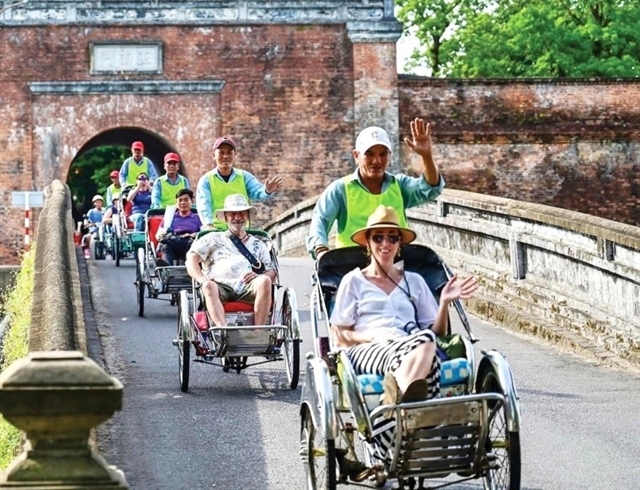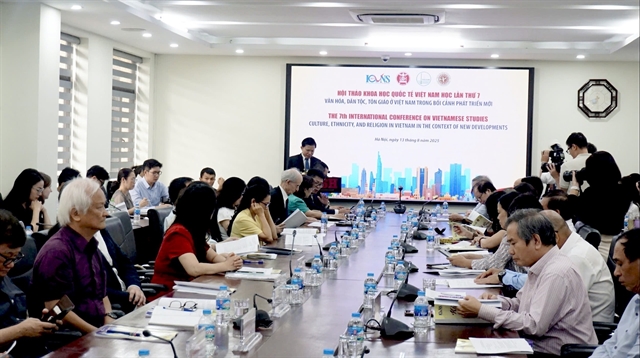 Society
Society


|
| A view of the fifth session of the 7th International Conference on Vietnamese Studies. — VNA/VNS Photo |
HÀ NỘI — The fifth session of the 7th International Conference on Vietnamese Studies, themed “Culture, ethnicity, and religion in Việt Nam in the context of new developments,” was held in Hà Nội on Wednesday, serving as a platform for domestic and foreign scientists, managers and social activists to connect and exchange ideas.
The event was jointly held by the Hanoi University of Social Sciences and Humanities (USSH) under the Việt Nam National University, Hà Nội (VNU Hà Nội) and the Việt Nam Academy of Social Sciences (VASS).
In his opening remarks, Prof. Dr. Hoàng Anh Tuấn, USSH Rector, highlighted the significance of the conference, recalling its first edition in 1998 as a forum presenting the latest achievements of Vietnamese studies by scholars at home and abroad.
He noted that this year's conference focuses on theoretical and practical issues related to culture, ethnicity, and religion in the context of Việt Nam's development, modernisation, and international integration. It also serves to honour the nation’s historical, cultural, and social values and achievements over the past 80 years.
It examined cultural characteristics, cultural exchange and transformations in the context of national development and global integration, as well as issues related to cultural practices, social behaviour, family relations, and marriage.
Delegates analysed the current state and development trends of Việt Nam's cultural and social life, offering assessments and conclusions on related issues, thus highlighting the vital development strategy of harmoniously resolving the cultural relationship between tradition and modernity, and between heritage and innovation.
Tuấn said Việt Nam's rich and diverse cultural resources hold multi-faceted value, contributing to economic development and enhancing the nation’s cultural position in the international arena.
Culture is closely linked to tourism and regional and local economic development, he noted, adding that cultural and creative industries have strong development potential in the new era by leveraging digital technology and the economy.
Regarding ethnicity and ethnic policies, Việt Nam is home to 54 ethnic groups, each with its own cultural identity, creating a unified and diverse culture. The spirit of great national solidarity is promoted by the entire Party, State and people throughout history, bringing about significant achievements.
Analysing the link between tourism and festivals, Dr. Trần Thị Phương Hoa from the VASS said that developing pilgrimage and festival tourism can generate multiple benefits, including creating additional income for local communities, boosting related industries, helping preserve traditional festivals, heritage sites, and cultural values, and promoting Vietnam’s image and culture to international visitors.
Experts and scholars from reputable institutions, domestic research and training centres, and international organisations assessed the current situation, transformation trends, and the impacts of development policies on these fields. They also shared experiences, research findings, and policy recommendations to promote the role of culture, strengthen national unity, and ensure freedom of belief and religion. — VNA/VNS




